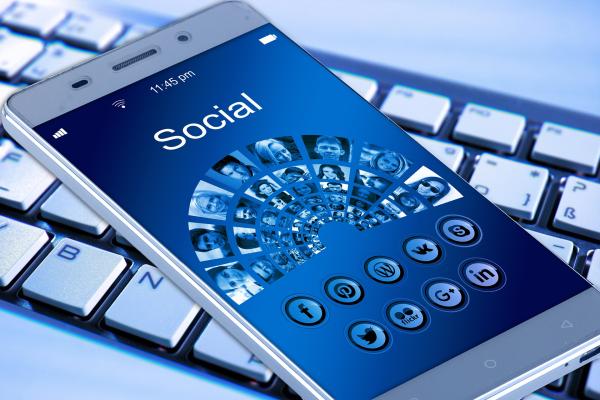It was a problem for years. First thing in the morning, I would shut off my phone alarm, open the Twitter app and begin scrolling through my timeline before reluctantly getting out of bed to be productive. Throughout the day, social media discretely consumed inordinate amounts of my time before I decided to make some changes, and the chances are good that I'm not alone in the struggle to limit my Twitter use. [1] According to a recent survey, Americans spend between five and six hours on their mobile phones, 145 minutes of which is dedicated to social media.
With so many people spending so much time on Facebook, Twitter, Instagram, and all the rest, researchers have grown curious about how these apps affect our well-being, and studies exploring the issue have proliferated in recent years. The results are decidedly mixed, with some papers showing that heavy social media use is linked to higher rates of depression and suicidal ideation and others suggesting that these effects are likely exaggerated.
Of course, the standard limitations that hinder public health research generally apply here, too: reliance on self-reported data, difficulty controlling for confounding variables, and study designs that can't demonstrate causation.
A team of researchers writing in Addictive Behaviors Reports sought to bring some clarity to the discussion by conducting a randomized controlled trial of social media users. The study included 76 college students assigned to an experimental or control group, 40 and 36 people, respectively. The former were told to reduce their social media time by 50 percent for seven days, while the latter were instructed to cut back only 10 percent over the same time period.
Since self-reported data are generally inaccurate, the researchers collected smartphone use statistics via digital well-being apps installed on the users' phones. They then measured how reduced social media time affected the participants' sustained attention, emotional well-being, fear of missing out, impulsivity, self-control, and habitual and problematic smartphone use, utilizing a variety of tests. Conclusion:
Interestingly, across all participants behavioral performance on sustained attention tasks remained stable over time, while perceived attentional performance improved. Participants also self-reported a decrease in negative emotions, but no increase in positive emotions.
...
A key strength of the current study is that we used a behavioral measure of screen time. The fact that this measure shows no relationship to cognitive performance nor emotional well-being, calls into question the ‘moral panic’ over social media screen time
So, moral panic debunked, right? Not necessarily. Beyond the small sample size and short duration, the study had important limitations that may prevent us from drawing any firm conclusions.
For one thing, the study didn't include a true control group. If you want to investigate the effects of social media, ideally, you compare users to non-users. The researchers intentionally avoided this design so the controls wouldn't modify their behavior in response to being monitored. [2] Ironically enough, the control group actually cut their use by 38 percent (instead of the prescribed 10 percent) because they knew the well-being apps were monitoring their time on social media. As the authors put it:
We deliberately opted to not include a 0% reduction control group in our design, in order to ... provide also the control group participants with a full-blown sense of being involved in an experiment. The current finding that a non-zero percent reduction for a control group may trigger additional – and more problematic – side effects ... that we aimed to prevent ... is an interesting finding in itself.
The results may also be limited by the fact that study participants weren't equal social media users. Some preferred Instagram to WhatsApp, for example, and some used their preferred app much more than other individuals in the study, which could have biased the results:
After all, for the light Instagram users in the experimental group, a 50% reduction in Instagram use may not have been very impactful, whereas for the heavy Instagram users in the control group, the actually enforced relative reduction of 35% may have had a more profound impact, thus leveling out any difference between the two groups.
None of this is meant as criticism of the researchers. Indeed, they reported all these limitations in their paper and were careful not to exaggerate the significance of their findings. If anything, the study confirms just how difficult it is to investigate human behavior in a controlled setting. Perhaps the key takeaway, at least for now, is that researchers can't precisely quantify the long-term effects of social media use. Maybe it's up to you and me to assess what all that scrolling does to our brains (and our kids' brains) and adjust accordingly.
[1] I now keep my phone out of sight when I'm not using it to avoid mindless scrolling. I also uninstalled the mobile apps.
[2] This is a common problem in studies of this sort. People behave differently when being observed.




